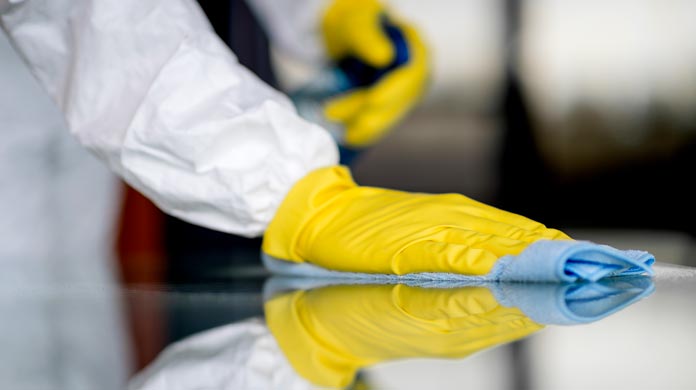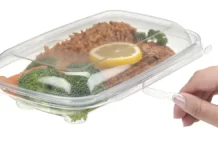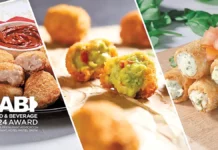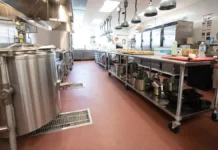
By Judy Black, BCE, VP Quality Assurance and Technical Services, Orkin, LLC
From the onset of COVID-19, disinfection has been at the forefront of business owners’ and consumers’ minds alike. And while disinfection has always been a top priority for the foodservice industry, it is even more critical now.
In fact, proper disinfection techniques could make a significant impact on just how long this pandemic lasts. To help stop the spread of pathogens, restaurants need to continue acting quickly and strategically to keep their establishments as sterile as possible. This means taking proactive measures for customers and employees—in particular, increasing disinfection techniques.
Terms like “cleaning,” “sanitizing” and “disinfecting” have very different implications when it comes to ridding surfaces of bacteria, viruses and fungi—what we generally refer to as “germs.” When it comes to helping stop the spread of the novel coronavirus, knowing the differences between these processes is important, especially for restaurant owners.
- Cleaning helps remove germs by ridding surfaces of dirt and grime. Using water and soap, or some type of detergent, cleaning physically removes dirt and other organic material, often by washing them down the drain. While cleaning can remove some germs, lowering the risk of spreading infection and viruses, this process does not kill germs.
- Sanitizing a surface means “to reduce, but not necessarily eliminate, microorganisms from the inanimate environment to levels considered safe as determined by public health codes or regulations,” according to the EPA. However, dirt and grime can create a protective barrier for germs, so a surface must be cleaned before it can be sanitized. Sanitizing does not impact viruses.
- Disinfecting kills 100 percent of bacteria, fungi and viruses on both surfaces and objects through the use of active ingredients. Disinfectant products—a subset of antimicrobial pesticides—destroy harmful microorganisms on hard, non-porous surfaces when applied at full strength in accordance with the product label. As in the case of sanitizing, disinfecting is not fully effective without first cleaning the surface.
Pest management is one of the few designated “essential services” during this pandemic, and providers like Orkin are able to service restaurants with a goal of helping to quickly and thoroughly suppress a wide variety of serious pathogens. To put your restaurant in the best position possible, consider taking the following steps.
- Ensure the disinfectant used is included on the EPA’s “List N.” These products are EPA-registered and labeled for use against a wide variety of pathogens, including other known coronaviruses. In being included on the list, it means the disinfectant meets the EPA’s criteria for use against SARS-CoV-2, the coronavirus that causes COVID-19.
- Check the disinfectant’s effectiveness. Orkin recommends using a powerful disinfectant that will kill 100 percent of bacteria and viruses on hard, non-porous surfaces when applied at full strength in accordance with the product label.
- Look for a “no rinse” option. For foodservice facilities, disinfectants rated “no rinse required on food contact surfaces” category D2 by NSF International are most ideal. This means they are approved for use in commercial or residential kitchens to control bacteria, viruses and mold without the need to wash or rinse the area with water after it is applied.
While there’s no silver bullet for stopping coronavirus yet, the newly announced Orkin® VitalClean™ service is an effective option for disinfection. As with any treatment using a disinfectant, surfaces can be re-contaminated after treatment, so you’ll want to consider weekly treatments of high-traffic areas to lower the risk of surface contamination and disease transmission. Also, consider immediate treatment of areas that have been occupied by someone showing COVID-19 symptoms.
It’s no secret that restaurant owners and their staff are feeling the catastrophic effect of the COVID-19 pandemic across the country, but following these suggestions will set you on the path to reducing risk and helping restore a safer and healthier foodservice environment.
Judy Black is the Vice President of Quality Assurance and Technical Services for Rollins, Inc. A board-certified entomologist and PMP Hall of Fame recipient, she has more than 30 years of experience in the pest management field and is an acknowledged leader in the industry. For more information, email JBlack@rollins.com or visit www.orkincommercial.com.

























